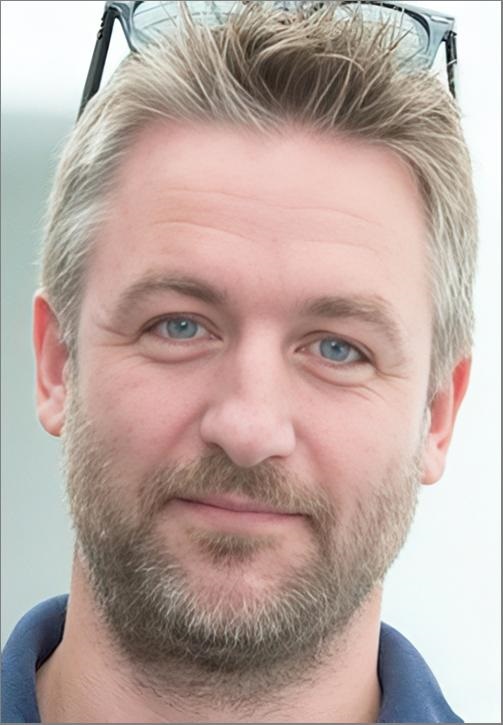Findings could lead to new clinical laboratory cancer screening tests for BRCA1 and BRCA2 among specific population regions
Descendants of a remote Scottish island are much more likely to carry a cancer-causing BRCA2 gene than the rest of the UK. That’s according to a study conducted by the University of Edinburgh in Scotland. For pathologists and clinical laboratory managers, the study’s findings demonstrate how ongoing research into the genetic makeup of subpopulations will find groups that have higher risk for specific health conditions than the general population. Thus, diagnosticians can pay closer attention to screening these groups to achieve early diagnosis and intervention.
“The findings follow earlier research from the Viking Genes study that found a cancer-causing variant in the related BRCA1 gene, common among people from Orkney [a group of islands off Scotland’s northern coast],” noted a University of Edinburgh news release.
In their latest research, the genetic scientists discovered that the BRCA2 gene can be found in one in every 40 people with heritage from the island of Whalsay in Scotland’s Shetland island group. This gene is one of the most common genes that can be linked to breast cancer and ovarian cancer in women and breast and prostate cancer in men.
Those who inherit the BRCA2 gene have a significantly higher risk of developing certain cancers than the general population. For example, according to the National Cancer Institute, more than 60% of women who inherit the gene will develop breast cancer in their lifetimes.
The volunteers in the Viking Genes study have a risk of having a BRCA2 gene that is 130 times higher than the general UK population. According to the BBC, geneticists believe the gene can be traced back to one family from the island of Whalsay before 1750.
The researchers published their findings titled, “Two Founder Variants Account for Over 90% of Pathogenic BRCA Alleles in the Orkney and Shetland Isles in Scotland,” in the European Journal of Human Genetics.

“It is very important to understand that just two gene changes account for more than 90% of the inherited cancer risk from BRCA variants in Orkney and Shetland. This is in stark contrast to the situation in the general UK population, where 369 variants would need to be tested to account for the same proportion of cancer risk from BRCA genes. Any future screening program for the Northern Isles should therefore be very cost-effective,” said James Wilson, DPhil, FRCPE (above), Professor of Human Genetics at University of Edinburgh and leader of the study, in a news release. Clinical laboratories in the UK will be involved in those screenings. (Photo copyright: Scottish Genomes Partnership.)
Early Diagnosis Brings Hope to Families
The UK’s National Health Service (NHS) offers genetic testing to relatives of people with a known BRCA variant. Individuals with at least one Whalsay grandparent, and who have a close family history of breast, ovarian, or prostate cancer, can also request NHS testing.
As the BBC reported, University of Edinburgh’s discovery has given families answers and hope for the future. Individuals who fit the criteria for being at risk of inheriting the BRCA gene can narrow their testing and work more specifically on preventative measures with their doctors.
Christine Glaser, a woman from Lerwick in Shetland, learned she carried the BRCA gene after participating in the study. Though the Viking genes research took place nearly a decade ago, scientific understanding of genes has improved allowing geneticists to draw new conclusions from previous studies.
Although Glaser lost her sister to ovarian cancer, she and her family were unaware of their heightened genetic risk.
“I got offered preventative measures so I could get my ovaries removed and I could get a mastectomy. So, that’s what I did … when I got my ovaries removed, they checked them and there was no cancer, but then I had a mammogram and they found cancer,” she told the BBC. Glaser’s cancer was successfully treated thanks to early detection.
Closing Gap in Genetic Testing
“This BRCA2 variant in Whalsay I think arose prior to 1750. This is why these things become so common in given places because many people descend from a couple quite far back in the past, and if they have a cancer variant, then a significant number of people today—five or even 10 generations later—will have it. This is true everywhere in Scotland, it’s just magnified in these small places,” said James Wilson, DPhil, FRCPE, Professor of Human Genetics at University of Edinburgh, who led the study on Viking genes that found individuals with familial ties to two small Scottish communities may be at a higher risk of having a cancer-causing gene.
Wilson hopes to see testing for these genetic abnormalities become more common for these at-risk communities.
“The Ashkenazi Jewish community have BRCA1 and BRCA2 variants that also have a frequency of about one in 40,” he told the BBC. “The Ashkenazi Jewish population in England are able to take part in genetic testing for these genes but that’s not yet the case in Scotland.”
The findings of the most recent University of Edinburgh genetic study are very new. Future developments and offerings from the NHS may be influenced by the results.
Deeper understanding about the genetic make-up of certain population subgroups could lead to new genetic personalized medicine and preventative testing for those at risk of hereditary cancer. In turn, it could also encourage individuals to seek preventative care earlier. Thus, pathologists and clinical laboratory managers should keep an eye on these developments and be prepared to work with geneticists who may develop new screening methods for BRCA1 and BRCA2.
—Ashley Croce
Related Information:
Cancer Gene Linked to Scottish Island
Cancer Risk Gene Variant Discovered in Orkney
BRCA Gene Changes: Cancer Risk and Genetic Testing
Faulty Cancer Gene Traced Back to Shetland Island
NHS Launches National BRCA Gene Testing Program to Identify Cancer Risk Early


